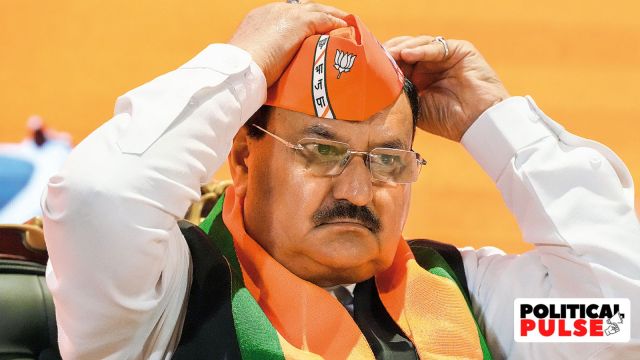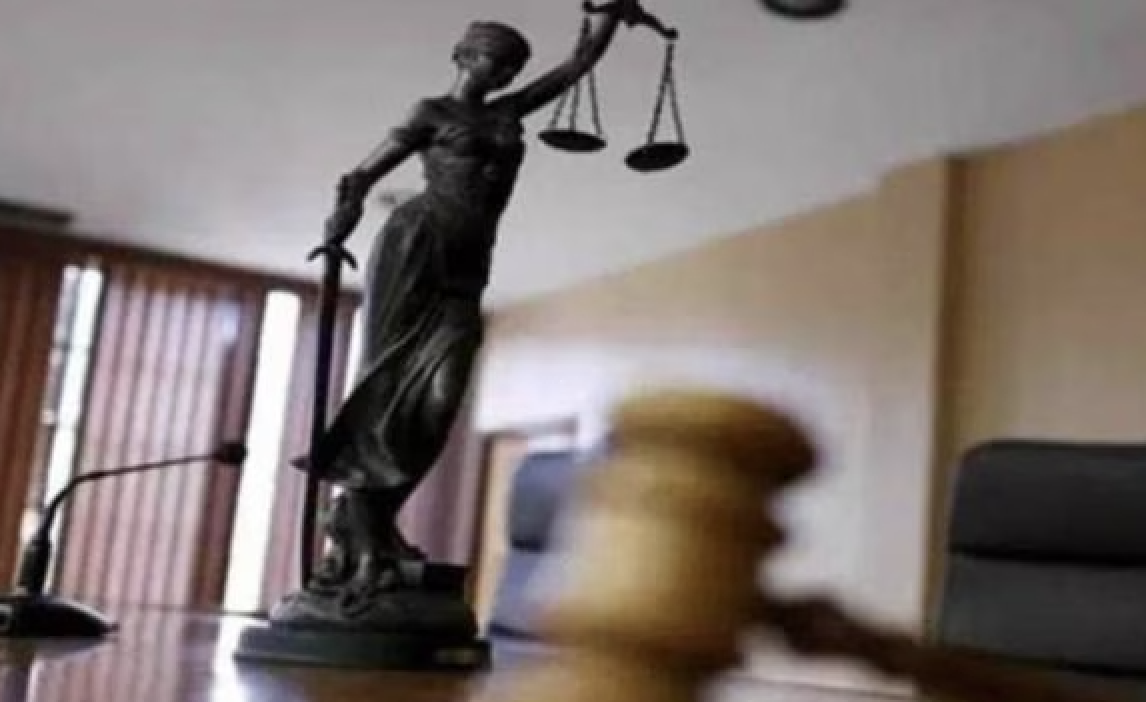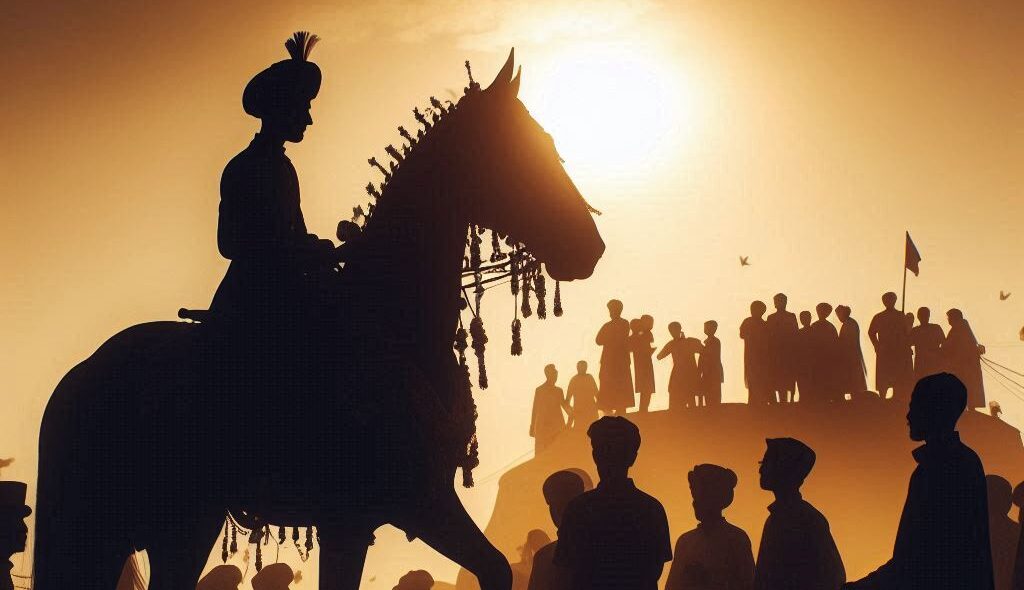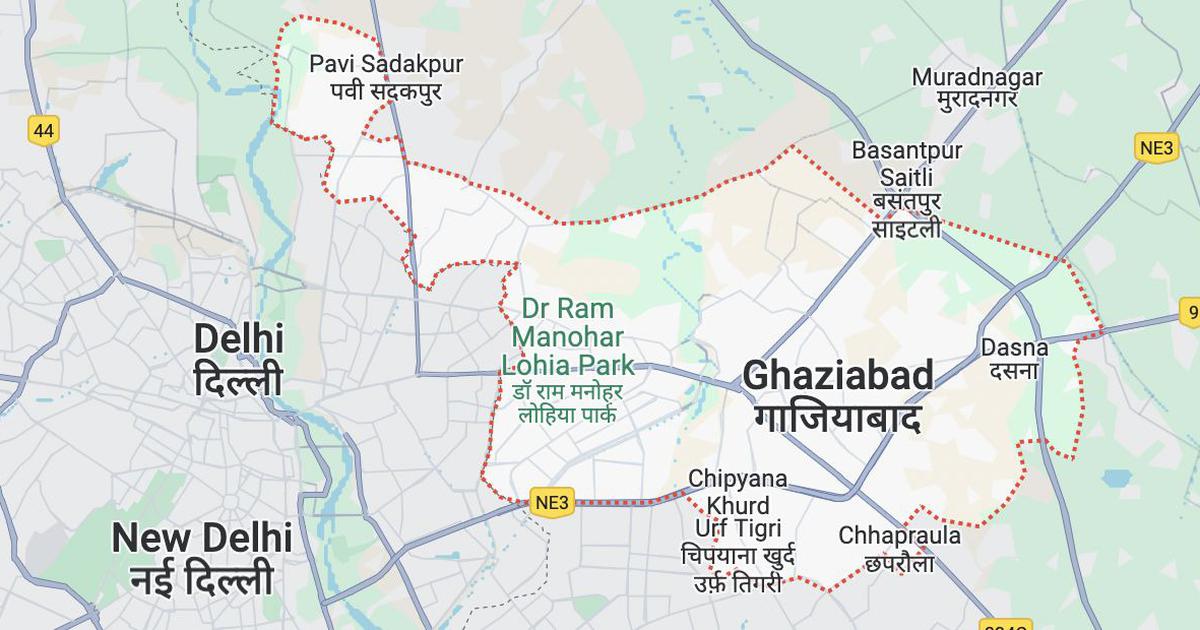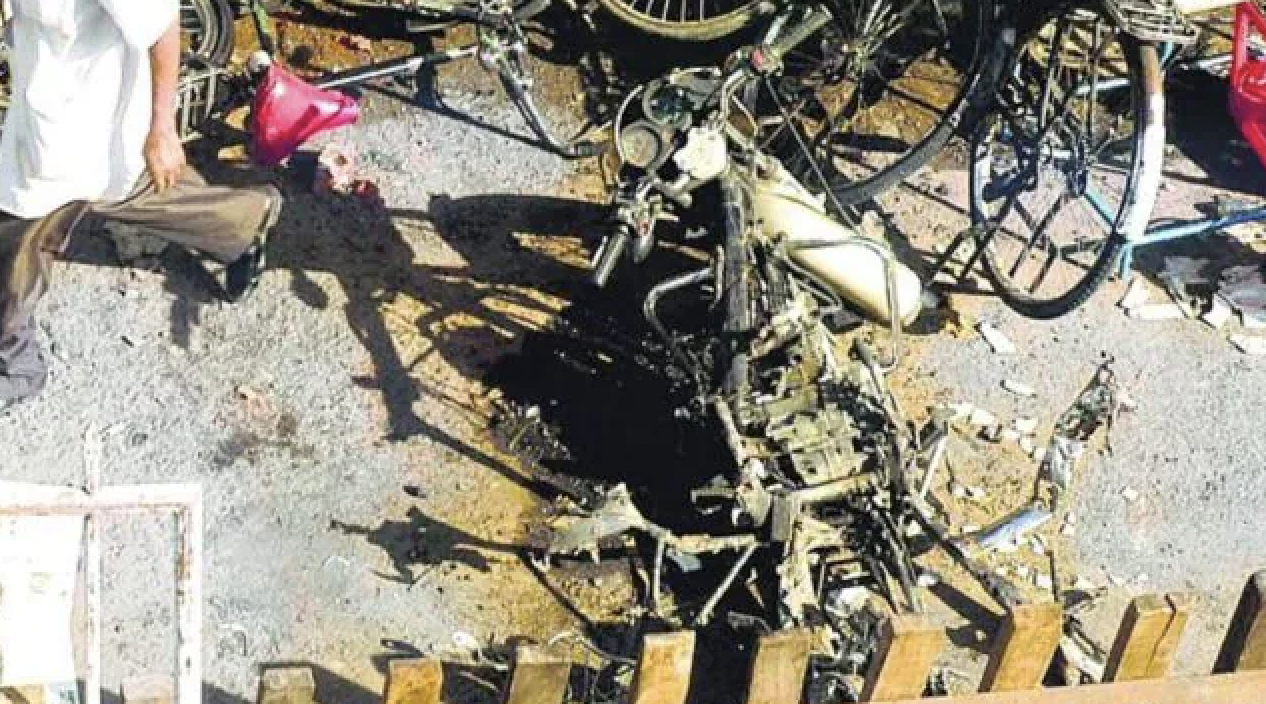
By MANI CHANDER / Article14
New Delhi: “Bewajaah koi bhi sadak par ikattha bilkul na ho jisse poori millat ko nuksaan uthaana pade, jumma padhein aur apne ghar jaakar dua kariye aman aur shanti mohobbat kaayam rahe”. Do not gather on the road together without reason, the entire community will have to bear the brunt. Read your Friday prayers, go home and pray that harmony, peace and love will prevail.
This was what Javed Mohammed, 54, wrote on Facebook on 11:12 am on 10 June 2022, among other appeals he made for peace on Facebook and Whatsapp (here, here and here) to address resentment felt by Muslims, 14 days after a spokesperson of India’s ruling Bharatiya Janata Party (BJP) made abusive comments about the Prophet Mohammed.
It was on 26 May 2022 that Nupur Sharma, later removed as BJP spokesperson, made those remarks during prime-time national television debates on News24, Republic TV and Times Now, sparking outrage, both nationally and globally, and spurring protests across the country.
The Facebook timeline of Mohammed, a leader of the little but locally known 11-year-old Welfare Party of India, revealed that one of his posts calling for peace was made hours prior to the protests turning violent in Prayagraj, formerly Allahabad, in Uttar Pradesh (UP), on 10 June.
On 11 June, the local police arrested Mohammed. Later, his wife and daughter were allegedly picked up during the night by the police, who now accuse Mohammed of being the “mastermind” behind the protests.
The man who set off the cycle of events, Mohammed Zubair, an engineer, fact-checker and co-founder of Alt News, and frequent target of attacks by Hindu extremists for calling out fake news, doctored videos and lies, became an ever-greater target after drawing attention to a clip of a 26 May Times Now debate where Sharma made those remarks.
Although this was the proximate reason Zubair attracted the attention of right-wing trolls, The Wire’s 2 July 2022 investigation showed that he had been the target of a years-long campaign to discredit and implicate him.
Sharma and her family were granted security by the Delhi police in view of “constant threats to her life”. Days later, she was suspended from her party and at least 10 first information reports (FIRs) were filed against her in four states.
“If anything happens to me,” Sharma later said, “Let it be known that Mohammad Zubair is to be held responsible.”
While Sharma remains free, Mohammed and Zubair had been in jail for 39 and 23 days, respectively, when this story was published. Zubair now has at least seven criminal cases against him, and despite getting bail from the Patiala House Court at New Delhi, remains in jail because of the rash of cases.
On 18 July, the Supreme Court referred to a “vicious cycle” of cases against Zubair, as it ordered “no precipitative action” against him by any court. “When he is granted bail in one, another case is listed against him,” said Justice D Y Chandrachud. “So the vicious cycle continues.”
As Mohammed and Zubair remained in jail, 121 Adivasis from one of India’s most disadvantaged communities were acquitted on 15 July 2022 of charges of terrorism after five years in jail.
There was no evidence, said a special National Investigation Agency (NIA) court in Chhattisgarh, that the 121 Adivasis from six villages were Maoists or Naxals, as the police alleged, involved in a 2017 attack on paramilitary forces, in which 26 died.
Neither were weapons recovered nor was there anything to support the charges made under 14 sections of five laws that they were charged with, including the Unlawful Activities (Prevention) Act (UAPA), 1967, Indian Penal Code (IPC), 1860, Chhattisgarh Public Security Act (CPSA), 2005, Arms Act, 1959, and Explosive Substances Act, 1908.
The exoneration of the 121 Adivasis, and the prosecution and continued incarceration of Mohammed and Zubair are the latest evidence of how the State adopts extra legal methods of dealing with what we can define as “inconvenient citizens”, journalists, dissidents, activists, the poorest Indians or almost anyone, used to push official narratives of conspiracy and terrorism.
Inconvenient Citizens & Punishment By Process
There is now a clear pattern that reveals how the State proceeds against inconvenient citizens: Laws are manipulated or egregiously misinterpreted—as one judge in one of Zubair’s many legal battles for bail pointed out on 16 July—due process is not followed by the police or the courts, and when cases appear to have no legal basis, police make new allegations, add sections of law and file new cases with little or no evidence.
Like Mohammed, Zubair and the Adivasis, there are others—a tribal youth who was booked for stealing a car but did not know how to drive; a man without legs and forearms accused of throwing stones; and a journalist, Siddique Kappan, en route to report the rape and murder of a Dalit girl, picked up and incarcerated for 650 days (until this piece was published) on charges of sedition and the UAPA.
These cases shed light on the systemic flaws in India’s justice system and how those are frequently exploited by governments, both union and state, to incarcerate someone indefinitely, particularly when inconvenient to the State.
In March 2022, an Article 14 investigation had revealed how by using security laws, deploying surveillance technology and leveraging potent national-interest narratives, the government of Prime Minister Narendra Modi had targeted critics and eroded the rule of law in India, often in violation of the Constitution, using legal loopholes and grey area.
The Indian justice system is inherently faulty in that it starts punishment even before trial commences, with the most disadvantaged communities making up a disproportionate number of those in jail without a trial. Of nearly half a million prison inmates, 76% were undertrials, according to 2020 government data, the latest available: 20% of undertrials were Muslims and 73% were Adivasais, Dalits or other backward communities.
In both Mohammed and Zubair’s case, trial has not begun and ‘investigation’ is still underway. Yet, Mohammed now has no home, and Zubair, a man in the business of fact-checking, was told not to tweet by a judge who granted bail in one of cases against him.
Such State misuse of the legal process has wider consequences. As a direct result of the demolition of Mohammed’s home, for instance, many people in his locality reportedly vacated houses and shops out of fear that those, too, may be demolished. In Zubair’s case, the personal information of his journalistic sources and donors has been compromised, and a chilling effect on the larger journalistic community is likely.
Crafting Narratives
In the case of Mohammed, the crafting of a narrative began with a vague political threat, rapidly followed by official, legal action that appeared to have little basis in law and did not allow due process.
On 11 June 2022, the day Mohammed was arrested, Mrityunjay Kumar, media advisor to chief minister Yogi Adityanath, tweeted “Remember, every Friday is followed by a Saturday,” alongwith a photo of a bulldozer demolishing a building.
That day, a notice addressed to Mohammed was pasted outside his home, claiming the building was constructed in violation of the Uttar Pradesh Urban Planning and Development Act, 1973. According to Mohammed’s family, it was the first and only time this was brought to their knowledge.
In less than 24 hours, on 12 June 2022, a Sunday, the Prayagraj Development Authority (PDA) accompanied by scores of policemen and three bulldozers, demolished Mohammed’s home for “illegal encroachment”.
It took nearly five hours, from uprooting his gate to reducing the family’s home to rubble, an act aired on national television.
“Even if you assume for a moment that the construction was illegal, which by the way crores of Indians live, it is impermissible that you demolish a house on a Sunday when the residents are in custody,” former chief justice of Allahabad High Court, J Govind Mathur, told the Indian Express on 13 June.
On 21 April 2022, in a different case before the Supreme Court concerning the demolition drive in Delhi’s Jahangirpuri, lawyer Dushyant Dave argued that bulldozers were being used as an instrument of state policy against a “particular section of the society”.
“There are 731 unauthorised colonies in Delhi with lakhs of people and you (referring to the State) pick up one colony because you target one community” he said.
Several media reports (here, here, here and here) pointed to other obvious illegalities committed by the PDA, both in serving the notice and the manner of demolition. At least two petitions challenging the demolition are pending before the Allahabad High Court and Supreme Court.
Mohammed continues to be in jail, his family homeless. The State did not stop at the demolition.
Once the house was razed, the UP police claimed that they had found illegal weapons, books they found to be suspicous, such as ‘Is Islam a violent Religion’ and ‘Rise and Fall of Muslim Ummah’, and “objectionable” posters—which read ‘Muslim lives matter’ and ‘When Injustice becomes law, rebellion becomes duty’—at Mohammed’s home during a search before the demolition.
Heads I Win, Tails You Lose
As in Mohammed’s case, the state appears to have deployed its might to prosecute Zubair, making arrests that did not follow due process, with no apparent evidence, changing sections of laws that he was charged with and adding on cases and trials in at least seven courts.
On 27 June 2022, Zubair was summoned by the Delhi police in relation to a 2020 FIR (no. 194/2020) under the Protection of Children from Sexual Offences (POCSO) Act, 2012, a case where the Delhi High Court had granted him protection from arrest. The police had even filed a status report to the effect that no cognisable offence was made out, meaning that the police had no authority to arrest without a warrant.
While he was called for further “investigation” into that FIR, he was served a notice in a separate, new FIR (no. 172/2022) requiring him to join the investigation into a March 2018 tweet, which according to the police was “highly provocative”.
Not having been provided a copy of the new FIR or knowing its contents, and in absence of a legal representative, Zubair reportedly did not answer any further questions. Moments later, he was taken into custody for being “uncooperative”.
At 11:30 pm that night, Zubair was produced before a duty magistrate who granted one-day custody based on the allegations of non-cooperation.
The “highly provocative” tweet in question had an image with the caption: “Before 2014: Honeymoon Hotel. After 2014: Hanuman Hotel”. It emerged the image was taken from a Hindi comedy film, directed by Hrishikesh Mukherjee, in 1983, 40 years ago.
Zubair was booked under sections 153A (promoting enmity between different groups on grounds of religion, race, place of birth, residence, language, etc., and doing acts prejudicial to maintenance of harmony) and 295 (injuring or defiling place of worship with intent to insult the religion of any class) of the IPC, 1860.
On expiry of his one-day custody, on 28 June 2022, when Zubair was produced before a regular court in Delhi, the charge under section 295 was discreetly replaced with section 295A (deliberate and malicious acts, intended to outrage religious feelings of any class by insulting its religion or religious beliefs).
The presiding chief metropolitan magistrate, Snigdha Sarvaria, then went on to hold that the fact that the tweeted image was a still from a Hindi movie was “of no assistance to the accused at this stage” and summarily dismissed bail.
The magistrate did not even consider the fact that taking cognisance of these “offences” was barred by what is called “limitation”. As per section 468(2) of the Code of Criminal Procedure, 1973, the legally specified period within which police could take action for these alleged offences was three years.
Even if one were to ignore these patent infirmities, it was logical, necessary and incumbent upon the court to question: Whose religious sentiments were hurt? Were they hurt four years after the tweet had been posted? If so, was public order or tranquillity disturbed? Was arrest necessary to investigate a tweet that had no fallout?
Without answering any of these questions, the chief metropolitan magistrate extended Zubair’s custody by another four days and allowed the police to seize his phone and laptop as sought in the remand application. The tweet had been posted via a mobile phone with an Android operating system, yet the court permitted the seizure of the journalist’s laptop.
On 1 July 2022, Zubair, through his counsel, Vrinda Grover, challenged the magistrate’s remand order before a vacation bench of the Delhi High Court. There was an unusual sight at the hearing: the government’s top law officer, the solicitor general of India, Tushar Mehta, appeared for the Delhi police.
“Extraordinary fact that SG (solicitor general) will be appearing in the matter when the offence is too low, tells the story of the matter,” said Grover.
By then, only a day was left for the expiry of the four-day custody ordered by the trial court. Though Justice Sanjeev Narula of the Delhi High Court issued notice, it was to come up for hearing nearly three weeks later on 27 July 2022.
No Proof, Yet 5 Years In Prison
In the latest case that lays bare how the State cracks down on those who are easy or convenient suspects, 121 citizens were found not guilty after five years of wrongful incarceration.
Following a April 2017 attack in Burkapal in the Sukma district of Chhattisgarh, in which 26 Central Reserve Police Force (CRPF) personnel died, 121 tribals were arrested from six nearby villages.
Of the 121 accused booked by the police under stringent provisions of the IPC, Arms Act, Explosive Substances Act, CSPA and UAPA, seven were minors who were released earlier, while one, Dondi Manglu, died on 2 October 2021 while the trial was underway. The rest were acquitted on 15 July 2022 by a Chhattisgarh NIA court.
Bela Bhatia, one of the lawyers representing the accused, pointed to serious lapses in the investigation and irregularities in the way the prosecution conducted its trial, which began in August 2021, nearly four years after the FIR was registered.
According to Bhatia, the accused were “ordinary villagers” turned into “hardcore criminals as a scapegoat (sic) in the ongoing fight against the maoists”.
“The seven injured CRPF jawans were not made witnesses,” Bhatia was quoted as saying. “Instead, without any evidence, these Adivasis were picked up from Burkapal and surrounding villages, many when they were sleeping at home.”
After five years, the court found that the prosecution had failed to establish its case.
“No evidence or statement recorded by the prosecution was able to establish that the accused were members of the Naxal wing or were involved in the crime. No arms or ammunition seized by the police were proved to be found from the accused,” the NIA court held.
Using as legal cover anti-Maoist operations, the police continue to file cases against Adivasis, who often lack adequate legal representation and become easy suspects for indefinite incarceration without trial. As per 2020 NCRB data, 66.2% of the total prisoners in Chhattisgarh are under trial, up by 10% since 2019. Of these, majority belong to scheduled castes and tribes.
The State focus on criminalising the daily lives of marginalised and minority communities, whether Adivasis, Muslims or Dalits, and other “inconvenient citizens”, encourages law-enforcement agencies to abandon due process.
This is a pattern evident in the cases of Zubair, Javed Mohammed, the 121 tribals acquitted recently and the continued incarceration of 14 academics, lawyers, artistes and others accused in what is known as the Bhima-Koregaon case.
Bait & Switch
In absence of any material evidence on record to support their allegations, and knowing well that their case would not pass judicial scrutiny, the Delhi police improvised on 2 July 2022, when Zubair’s matter was being heard before the Patiala House Court.
A series of accusations have been filed in the legal record against Zubair, modified and expanded, in a manner reminiscent of the controversial Bhima-Koregaon case, where the charges and conspiracies alleged by police kept changing, even as evidence grew of planted evidence.
The special public prosecutor, Atul Srivastava, claimed that Zubair needed to be taken in custody because he accepted donations from foreign countries, such as Pakistan and Syria, and this required further investigation. None of this was true.
Now, the fact-checker is accused of an unrelated, new charge under section 35 of the Foreign Contribution (Regulation) Act or FCRA, 2010, which pertains to punishment for accepting foreign contribution or any currency or security from a foreign source without approval.
Even as the police continue to investigate, Razorpay, a digital payment platform used by Zubair’s organisation for receiving donations, admitted in a statement that only domestic payments were enabled for Alt News, in line with its policy to not allow international transactions without FCRA approval.
In addition, Zubair is also booked under section 120B (criminal conspiracy) of the IPC. A criminal conspiracy requires at least two or more persons, but the police have not yet been able to disclose Zubair’s co-conspirator.
He also faces a charge under section 201 (causing disappearance of evidence of offence) of the IPC for allegedly formatting his phone and deleting tweets. The 2018 tweet for which Zubair was initially booked, though, has not been deleted, and formatting a phone is no crime.
Inspiration From Bhima-Koregaon Case
To sustain their initial charge against Zubair, the police claimed that there was no bar of limitation as the tweet had not been deleted, and, so, it was a “continuing offence”. On many previous occasions (here and here) law-enforcement agencies have, on account of disturbance of peace or public order, taken down tweets. In this case they chose to prosecute Zubair for a continuing offence, while accusing him of deleting tweets.
The basis of the case against Zubair—the 2018 tweet—is now no longer the focus of the case, a method previously used in the 2018 Bhima-Koregaon case, where the accusations and accused evolved, initially from an investigation of “urban naxalism” to an alleged assasination plot against Prime Minister Narendra Modi, which in subsequent police statements was never mentioned again.
The Bhima-Koregaon case began, as Article 14 reported in July 2021, with five electricity workers arrested for their alleged role in the violence that broke out in the town of Bhima-Koregaon near Pune. Those charges were expanded to terrorism under the UAPA, but all five got bail, the last after 1,185 days.
Justice Bharati Dangre of the Bombay High Court ruled that prima facie the material against the last worker to get bail did not indicate that he had committed the offences he was charged with. The police argued, with scant evidence, that the workers had links with Maoists.
The four who were granted bail in December 2018 got it because the Maharashtra police’s anti-terorrism squad did not file a chargesheet within 90 days, as they were required to under the UAPA. An extension to this period was set aside by the Bombay High Court because neither the accused nor their lawyers were informed or present in a sessions court when it was granted.
As the initial accusations faded in the Bhima-Koregaon cases, new ones were made, an “international conspiracy” and “terorism” were added and 16 academics, artistes and activists were arrested, of which two are on bail, with no sign of the trial commencing.
The police seized Zubair’s electronic devices to “investigate” a four year old tweet and blatantly went beyond the scope of the charge under investigation. This fits the definition of what Indian courts have previously categorised as a “fishing and roving enquiry”.
Meanwhile, Zubair faces at least seven FIRs for different, unrelated tweets in Sitapur, Lakhimpur Kheri, Ghaziabad, and Muzaffarnagar districts of UP; one for rioting where neither Zubair nor his tweets or Alt News are mentioned; and another filed by the Delhi police for a 2018 tweet. The UP government even formed a special investigation to probe Zubair’s old Twitter posts.
In an 8 July hearing before the Supreme Court in relation to the FIR filed against him in Sitapur, UP, the solicitor general of India made evident the intent of the State as he laughed and said: “He is needed in Delhi. He cannot be on bail. He has to surrender.”
Despite being granted five-day interim bail in the Sitapur case by the Supreme Court and regular bail by the Patiala House Court at New Delhi, he has remained in custody for other cases in UP.
On 18 July, Zubair moved the Supreme Court seeking the clubbing of six FIRs filed against him in UP to the one in Delhi. While alleging that his life was in danger, Grover, Zubair’s counsel, alleged to the court that the Hathras FIR was registered against a cash reward.
“There have been cash rewards announced for registering an FIR or to get him arrested,” said Grover. “It was said that FIR must be registered to stop relentless attacks on Hindus and the Hindu gods and this act should be on the basis of dharma.”
“There was a video put up on how to register (sic) complaint, this is how criminal law machinery has to be used to target a journalist whom you do not agree with,” said Grover.
Over the 23 days since his arrest, Zubair was hauled back and forth to his home in Bengaluru, Tihar Jail in Delhi; Sitapur, Lakhimpur Kheri and Hathras in UP. In his plea before the Supreme Court, which will be heard on 20 July, he sought transfer to Tihar jail for his safety.
Anonymous Or Untraceable Complainants
Mohammed and Zubair’s cases, though factually different, have significant similarities. While Mohammed called for peace, Zubair fought disinformation and hate speech. These men are ‘inconvenient’ citizens because they are outspoken Muslims, denied guarantees of due process and are accused at the behest of anonymous or untraceable complainants.
In Mohammed’s case, the authorities claimed that demolition followed complaints from local residents named Sarfaraz, Md Azam, and Noor Alam. The complainants did not mention their address or contact details but described themselves as “respected people of the mohalla”. No one, including the authorities, have been able to either trace or identify them, the Indian Express reported.
When The Indian Express visited the mohalla at J K Ashiana Colony in the Kareli area of Prayagraj and inquired about the complainants from 30 residents within a radius of 400 m from the demolished house, all said they did not know who these complainants were and had never heard of them.
Zubair was booked for his 2018 tweet based on a complaint by an anonymous Twitter handle, who deleted the account temporarily soon after Zubair’s arrest.
A benevolent state and a functioning justice system assume that the guilty are punished and the innocent protected. This assumption is at the core of the faith that citizens place in the justice system.
The cases of Mohammad and Zubair lay bare many cracks. Among them is a serious lacunae in the law that allows the State to pursue some cases while turning a blind eye to others, such as the BJP’s Sharma, Hindu priests Yati Narsighanand, Bajrang Muni and several others accused of hate speech, who face graver and clearer charges but attract little attention from the State.
This article first appeared in article-14.com


